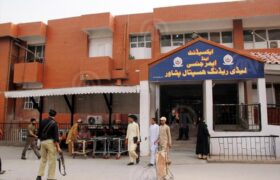Opportunities for youth in the field of IT Research and Development
By: Laila Sadaf
The 21st century has witnessed unprecedented developments in the field of technology. Recently; the world has seen a dramatically accelerating pace in the development and adoption of new technologies, even though various gaps persist in terms of adoption in different parts of the world, especially in the least developed countries. This rapid technological change is affecting almost every area of the economy, society and culture.
Rapid technological change involves, among others, technologies like big data, the Internet of things, machine learning, artificial intelligence, robotics, 3D printing, biotechnology, nanotechnology, renewable energy technologies, and satellite and drone technologies. These represent a significant opportunity for skilled youth to excel in their respective areas of interest and move along the fast-changing pattern of global trends.
A number of recent college grads and burgeoning businesspeople, around the world, are working on the next big innovations to be introduced in the field of IT. It seems sensible to preserve along these lines. Skype was created in 2003 by a group of young Estonians and later sold to Microsoft for $8.5 billion in pure cash. In actuality, all of the current global tech giants started out small. For 19 billion dollars—nearly three times Pakistan’s annual defence budget—WhatsApp was sold to Facebook. Such is the sector’s potential and range.
Pakistan’s tech sector is taking shape. The nation has a domestic market of over 200 million people, produces +20,000 IT graduates each year, and has launched over 700 digital start-ups since 2010, of which close to 70% are still operating today. Particularly in this period of budgetary austerity, the industry has the potential to fundamentally strengthen the nation’s economy.
For the young people of Pakistan to fully benefit from the possibilities of the globalized world, which has altered the way labour markets operate on a global scale, going digital is essential. An estimated 3–4 million young people in Pakistan use the internet and digital economy to connect with career prospects abroad. There are countless opportunities to address Pakistan’s development challenges, thanks to the unique solutions brought about by the latest developments in the IT sector. Thus creative, empowered, and connected Pakistani youth are producing pragmatic solutions for the structural issues prevalent in most institutions and reaping the fruits of their intellectual capabilities.
Along with the improvement in technology, business opportunities have also increased, due to which wide opportunities have been created for the youth. A lot of investment has been made in the information technology sector all over Pakistan. Pakistan Digital City Special Technology Zone is planned under CPEC. It is a flagship project of the Khyber Pakhtunkhwa government, which would be established on 86 kanals of land and would cost Rs1.31 billion. A large number of IT and allied technologies including electronics, computers and mobile phones, software houses and technology incubators would largely benefit from the project. It is likely to uplift the allied industries and generate hundreds and thousands of jobs for the youth.
Numerous individuals who operate in industries including banking, telecommunications, healthcare, education, etc. are recruited by Pakistani IT businesses. Because of this, over the past few years, the proportion of Pakistani students who want to pursue their academic careers in information technology has dramatically increased. In order to better serve all individuals with an interest, even universities are already making considerable adjustments to the curriculum for degree courses in computer science and IT.
Furthermore, the expansion of the services and information technology sectors is responsible for Pakistan’s transformation into a modern nation. Since using computers and other internet-connected gadgets has made their life easier and allowed people to do their tasks quickly and easily, the majority of Pakistanis are now using them. The number of skilled workers has greatly expanded, and as a result, an increase in the export of these services has been witnessed in the last few years.
Recent growth in the IT sector has resulted in the availability of well-paying jobs for professionals by expanding their employment options. The government and private firms have benefited from it as well. Around 7% of Pakistan’s GDP is contributed by the IT sector, which also employs hundreds of thousands of professionals in fields like banking, telecommunications, healthcare, education, etc.
As far as the financial independence of youth is concerned, they have been skilled through various courses relevant to IT resulting in a prodigious increase in foreign remittances. In the fiscal year 2020/21, Pakistan’s IT exports surged by 47.4% and surpassed the $2 billion milestone for the first time in the nation’s history, according to statistics released by the State Bank of Pakistan. In the fiscal year 2019/2020, the exports were $1.44 billion.
Given these facts, it is reasonable to conclude that a concerted effort between the government and the business sector is needed to educate and facilitate youth to be an asset to their country and play their immensely significant part in absolving Pakistan’s economy from this deadly debt trap and increase exports through the use of information technology. The key is to inform and assist our kids in this field.




